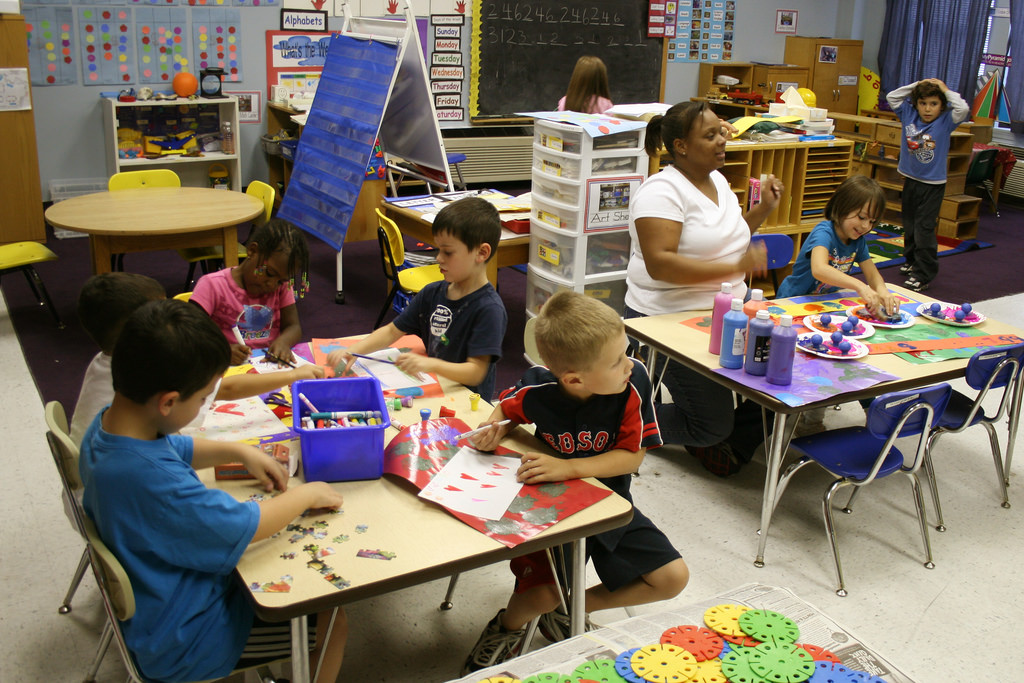While campaigning, the BC NDP promised a comprehensive review of the K-12 funding formula. This week it took a big step towards that goal. The new report of the Funding Model Review Panel contains 22 recommendations. Here are five takeaways:
1. Accountability is a big theme.
There are many things to applaud in the review, chief among them is the notion that resources are intended to affect outcomes, that outcomes are important, and that there are groups of learners, notably deaf and blind students, children in care and Indigenous students, whose outcomes fall significantly short of what one should expect.
Accountability for outcomes is a theme in the review. This is reflected in recommendations for system-wide goals, strategic planning on the part of school boards, and that outcome-focussed audits (quality assurance) are preferred to compliance audits.
2. So is inequality.
The panel recognized inequalities among school boards in their understanding of education finance and in governance. They acknowledge that small, rural and remote school boards are challenged fiscally and administratively and, thus, in how well they are able to provide education. They make recommendations about how to boost the abilities of those school board and develop leadership in schools.
Of course, each of the recommendations will require resources. And because of that, neither the Ministry nor the system can tackle all of them at the same time. Priorities will need to be established. Working out the arcana of funding distribution may prove the easiest to implement. Defining what a full-time equivalent student is and how one measures it, the use of school board reserves, targeted versus un-targeted allocations, consolidation of formulas for calculating the distribution of funds are comparatively easy to accomplish.
3. The teachers’ union will be instrumental.
The panel correctly identifies that the local and provincial collective agreements greatly affect the allocation of funds and are the source of inequalities among school boards. For example, a variety of contractual clauses devoted to class size limits and the number of special needs students in a class (class composition) create significant financial inequities among school boards and in learning opportunities for students. The ability to direct funds and human resources to meet student needs is perhaps a precondition to the K-12 system meeting the objectives of the funding review. Given that bargaining with teachers commences in the spring, there is an opportunity to address many of the funding inequities at the bargaining table.
4. You cannot reach a destination if you don’t know where you need to go.
The recommendations place a lot of emphasis on tracking and responding to student outcomes – mapping what’s working and what isn’t. Where students are doing well, there’s an opportunity to share best practices, and where they are underperforming, those in charge need to creatively reassess current practices. This is a good aim, because school boards, senior school board staff, and school administration tend to be so caught up in process they spend too little time on the most important facet of their work: improving student performance and results. The focus on two or three provincial goals that address student outcomes and requiring school board strategic plans to align with them are crucial steps.
But implementing strategic plans will require administrative acumen that is not uniformly distributed among boards and schools. Monitoring student results and providing help where results do not meet established benchmarks take specific and significant skills. Developing that acumen and capacity will take time.
5. This is going to take some new people and a lot of patience.
Capacity building is a Ministry responsibility. With all due respect to the talented people in the Ministry of Education, the organization lacks the ability to build capacity in the system. Additional personnel are needed who have expertise in building board capacity, supporting strategic planning, implementing strategic plans, monitoring results, and helping to adjust practice. The Ministry will need to play a more significant role in professional learning throughout the system. The Ministry took initial steps to support leadership in 2017-18, but the funding review appears to contemplate a much larger commitment. Although it was intended to focus on the funding allocation model, the review raised important issues and made recommendations well beyond model adjustments. I do not think I overstate the case by saying that.
British Columbia will benefit if the system embraces the opportunities afforded by the funding review to focus upon and improve student outcomes. But it will not be easy. If pursued, there are some significant challenges.
The report mentions some of those challenges:
- Lack of consensus among those from whom the panel heard; the position of school jurisdictions that reallocation should not reduce the funds they now receive;
- Addressing resource inequities produced by collective agreements;
- Developing expertise within the Ministry and having the Ministry take a more active part in professional learning at all levels.
In light of those challenges, the various constituent groups — school trustees, senior and school administrators, teachers, support personnel, and ministry staff — will need to see beyond the horizons of their own self-interests. The will need to focus on improving student outcomes, and they must have patience. ![]()
Read more: Education, BC Politics

















Tyee Commenting Guidelines
Comments that violate guidelines risk being deleted, and violations may result in a temporary or permanent user ban. Maintain the spirit of good conversation to stay in the discussion.
*Please note The Tyee is not a forum for spreading misinformation about COVID-19, denying its existence or minimizing its risk to public health.
Do:
Do not: